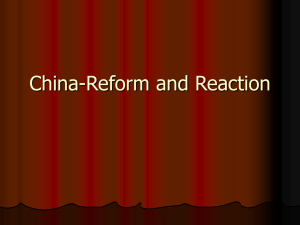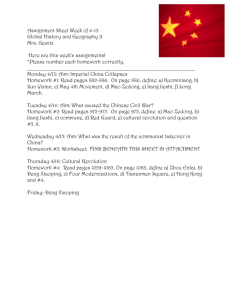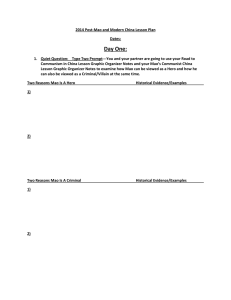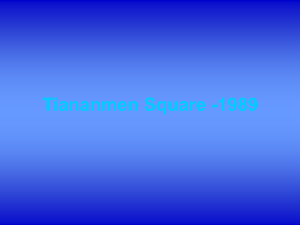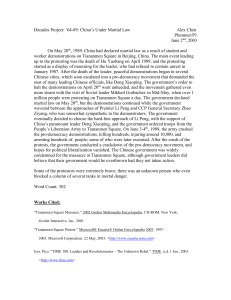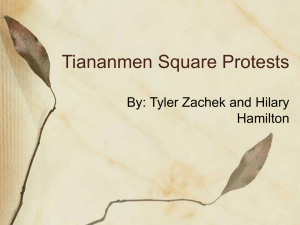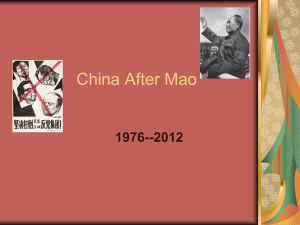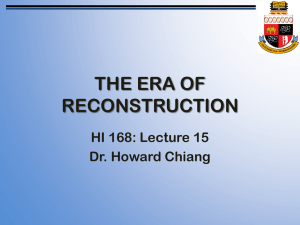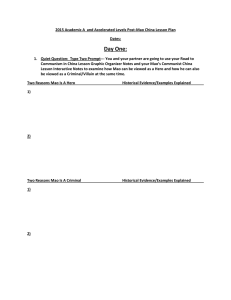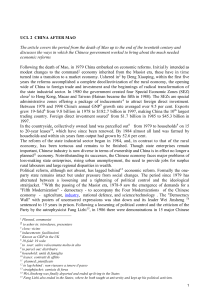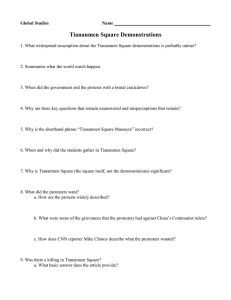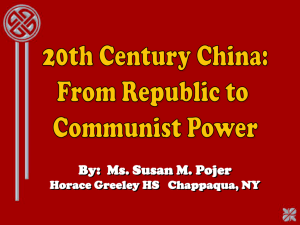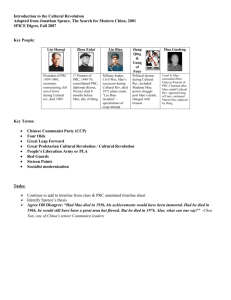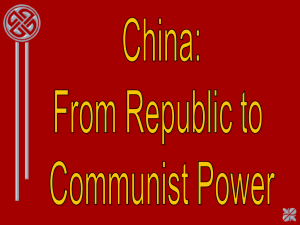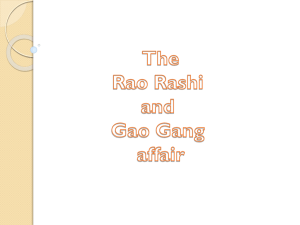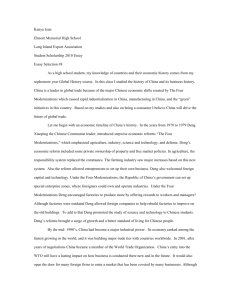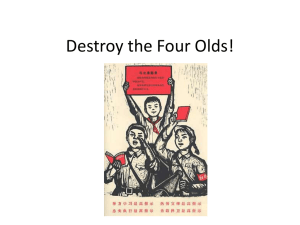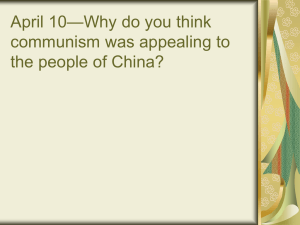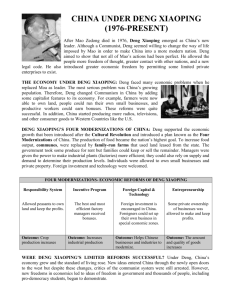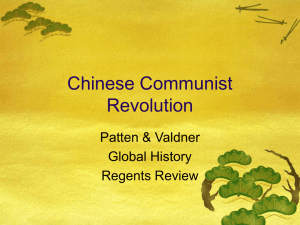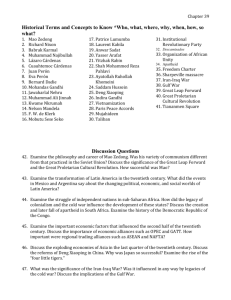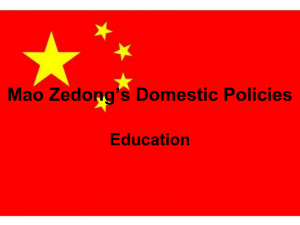Mao to Deng - Darien Public Schools
advertisement
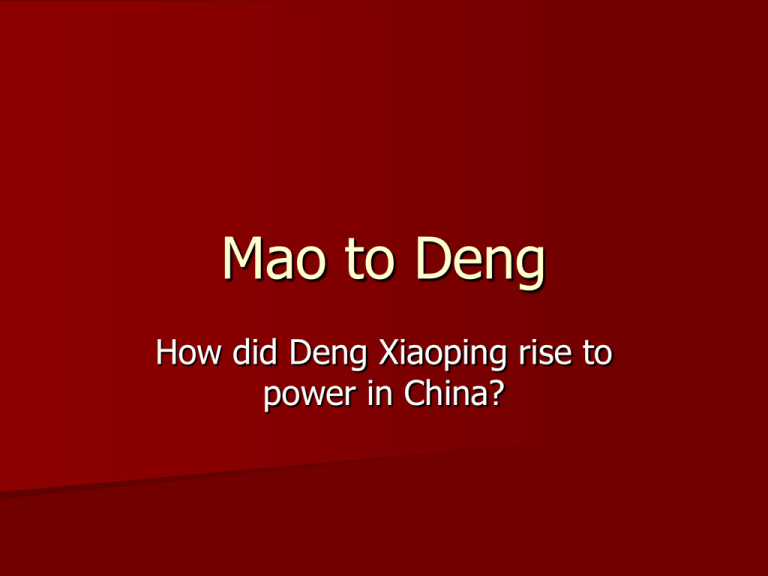
Mao to Deng How did Deng Xiaoping rise to power in China? Decline of Mao 1960’s Mao slowly losing power to his wife, Jiang Qing and her associates – The Gang of Four. Jiang Qing denounces Deng as a counterrevolutionary and a capitalist. – Sent to the countryside to work in a factory in 1967 Mao rehires him, hoping he will take power away from the Gang of Four Mao Dies – Power Struggle Deng gains the support of the military and is able to get control of the government. The Gang of Four is arrested, placed on trial, and sentenced to death. – None of them are executed, but all are imprisoned for life Deng begins the 2nd Revolution Political Changes Bringing justice to the Gang of 4 and others involved in the Cultural Revolution De-Maoization – undoing the glorification of the God-like Mao Giving govt. positions to younger, better educated people Economic Policy Four Modernizations – Program to improve agriculture, industry, science/technology and defense – Brought in a mixed economy with elements of capitalism – Began to rely on foreign technology and investment The Responsibility System Produce more, keep more for yourself Did away with Communes; peasants decide what to grow on land leased from the state All goods produced above quota, they keep for themselves – incentive to work harder Leads to better living standards, a SUCCESS! Changes in Industry Some private ownership is allowed and managers given more freedom in running factories Bosses could give bonuses to workers and could hire and fire people New Open Door Policy – allowed some foreign investors into the Chinese economy Economic Problems did Persist Inadequate transportation and energy sources Shortage of skilled labor Natural disasters Red Eyes Unemployment Inflation – Things no longer subsidized by the govt. Corruption in govt. and business (too much like capitalism) Tiananmen Square June 3-4,1989 University students led demonstrations demanding more political freedoms and democracy in the 80’s Resulting in Communist govt. crackdown – outlawed demonstrations…but not all listen Between 100-150,000 students demonstrated in Tiananmen Square for 6 weeks, demanding an end to corruption – not to Communism Tiananmen Square Inspired other demonstrations in public domain among workers and professionals – “Democracy Movement” 3,000 more students go on hunger strike demanding removal of corrupt official Li Peng Liu Xiaobo won the Nobel Peace Prize – he is in jail – the Chinese have put his supporters under house arrest – He wrote a charter calling for more democratic reform http://video.pbs.org/video/1146923141 Deng Declares Marshall Law Troops and tanks sent in to put down demonstrations in Tiananmen Square Attacked and killed almost 1,000 students, elsewhere others are killed for their “counterrevolutionary” actions (2,600 reported initially) Many others were arrested and executed publicly What effects do you think this had on China? On its relations with foreign nations? The effect of Marshall Law These are the images the world sees of Tiananmen The World Reacts I was only nine-years-old when I witnessed the massacre of peaceful pro-democracy demonstrators. I shall never forget the image of that young student facing down a tank in the middle of Tiananmen Square - I believe it is a defining image of the decade. Those images have stayed with me and even at such a tender age I realized that what we take for granted here (our democratic rights and civil liberties), others are denied and are prepared to die for! Denise, Northern Ireland
